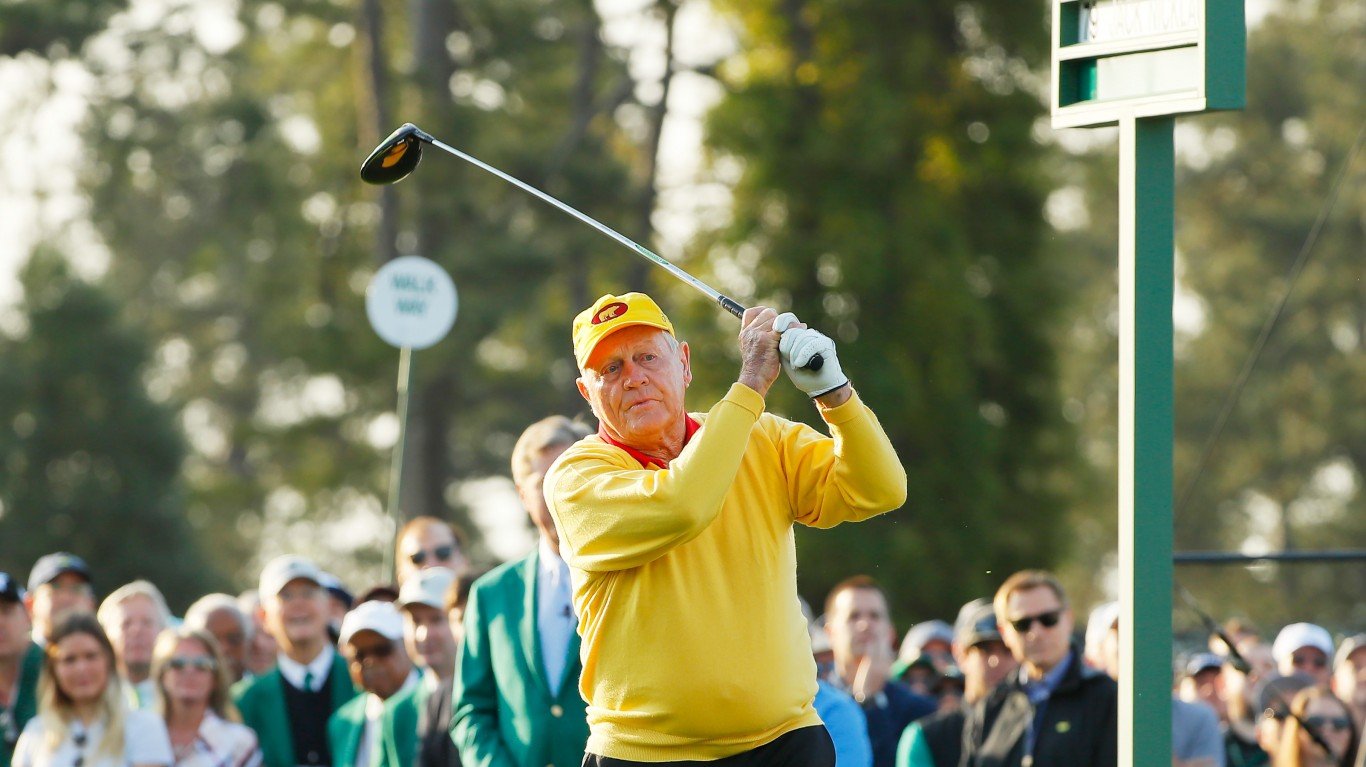

Like most things in American life, it’s easy to be overwhelmed by the sheer number of consumer choices out there. Just as it could be for your Starbucks order, so it could be for when you are getting to choose which golf clubs you might want to buy in that endless quest to improve your game. Or maybe you are just a beginner and you simply have no clue as to what might work for you.
Golf can be a game of fine margins. The same could be said for the wide variety of club brands out there. Let’s assume there has been the latest technology applied and some high-precision work has gone into the manufacturing of your latest irons and woods or hybrids. How then do you distinguish between what really works for you and what should be avoided? Because, at the end of the day, it is what works for you as an individual.
All that said, while the likes of Callaway, TaylorMade, Ping, and Titleist are almost universally loved for example, here is a list of ten club brands that perhaps should generally be avoided for various reasons, in no particular order.
The list comes from internet research from the likes of fan forums, golfing expert blog posts, and videos.
1. MacGregor

One of the more well-known brands that could be included here is MacGregor. Once a big name, the brand tends to focus more these days on golf clubs for beginners. It has struggled to keep up with the latest distance technology and players complain of a harsher feel hitting the ball.
2. Top Flite

Top Flite is another well-known brand that critics say doesn’t generally have a good feel even when you cream the ball out of the middle of the club. Similar could be said for the brand’s golf balls. The price may be attractive but the feel may be questionable. The quality of Top Flite has decreased over the years, some critics say.
3. Prosimmon

Prosimmon seems attractive given the price point, one of the lower-priced brands on the market. But the materials and technology used are generally going to be inferior to some of the top brands and that is reflected in the distance, forgiveness, and feel you might get from such clubs. Once lauded for their clubs in the 1980s, the brand’s reputation worsened over the following decades.
4. Nitro

Nitro is well known for its cheaper range of golf balls. It also makes clubs but they are perhaps more suited to beginners as their longevity is questionable. The typical large club head may be attractive to a beginner but you’ll likely need to upgrade if you are moving to a different level of game.
5. Ram

Ram was a world leader back in the day and included major winners such as Tom Watson and Gary Player among its adherents. But the brand has lost its luster and is now seen more as a name for beginners. That said, the brand is seen as good value for such beginners and even intermediate players and so could be a good starting point before upgrading to a more consistently reliable name.
6. Dunlop

Dunlop may be a good brand in terms of affordability but quality levels can be suspect. If you’re just starting out with the game, then Dunlop could be an option for you but, if you’re looking to invest more in your game and take it to another skill level, then alternative brands may be a better choice. Most critics appear to believe that Dunlop can be a fine brand for a beginner but you’ll need a significant upgrade once you are past that stage as a player.
7. Nike

Nike (Nike Inc.) Big name in athletics for sure but what about their golf lines? Well, the track and field and shoe wear giant actually left the golf club manufacturing business several years ago but their second hand clubs are still on the market. The company’s metal woods have long been seen as somewhat gimmicky, for example. Nike tried a lot of innovations with its clubs but such innovations often failed to gel with the average player. Great overall brand, but maybe that didn’t completely transfer to its golfing line though the apparel still seems to be going strong as witnessed here by a certain Tiger Woods.
8. Cleveland

Cleveland comes in for some criticism, especially since the departure of the company’s namesake founder Roger Cleveland in the 1990s who went on to use his skills with a brand that appears to have almost universal acceptance in Callaway. Since becoming a sister company to SRixon, Cleveland has largely kept its traditionally good reputation through its wedge clubs but suffers in comparison with other irons. All that said, the brand maintains a relatively strong reputation given the strength of its early years.
9. PXG

PXG. Not a great reputation – not necessarily so much for the clubs themselves – but, according to multiple sources, the overly aggressive way in which the clubs are marketed and advertised. The brand appears to be almost uniquely targeting men who would be attracted by an almost military style advertising campaign, critics say. New lines also often appear on a very regular basis, raising questions as to how much preparation and research has gone into such new clubs. The company doesn’t have physical storefronts either, something that doesn’t sit well with many.
10. Alien

Alien. The clubs may promise an “out of this world” experience but the brand appears to be strictly for beginners only. The quality of the clubs is not high enough if you want to improve your game, many say. Some critics go even further, saying the clubs are universally poorly made and should be avoided, even for a beginner. All that said, an attractive price point means the clubs sell well generally.
In conclusion, choosing golf clubs is highly subjective. It also very much depends on your skill level and the amount you play. Not to mention your budget. Like anything else, do not be fooled by the latest shiny toy and find some clubs that work for you as an individual. Most brands, even those whose reputation may not be the highest, especially as skill levels improve in players, can offer something for most people. Try a few out at your local golf club equipment store and see what works for you in terms of feel and budget. Or buy some used clubs with a good brand name. Nobody needs to be spending way above their budget to try and improve their game.
Take This Retirement Quiz To Get Matched With An Advisor Now (Sponsored)
Are you ready for retirement? Planning for retirement can be overwhelming, that’s why it could be a good idea to speak to a fiduciary financial advisor about your goals today.
Start by taking this retirement quiz right here from SmartAsset that will match you with up to 3 financial advisors that serve your area and beyond in 5 minutes. Smart Asset is now matching over 50,000 people a month.
Click here now to get started.
Thank you for reading! Have some feedback for us?
Contact the 24/7 Wall St. editorial team.
